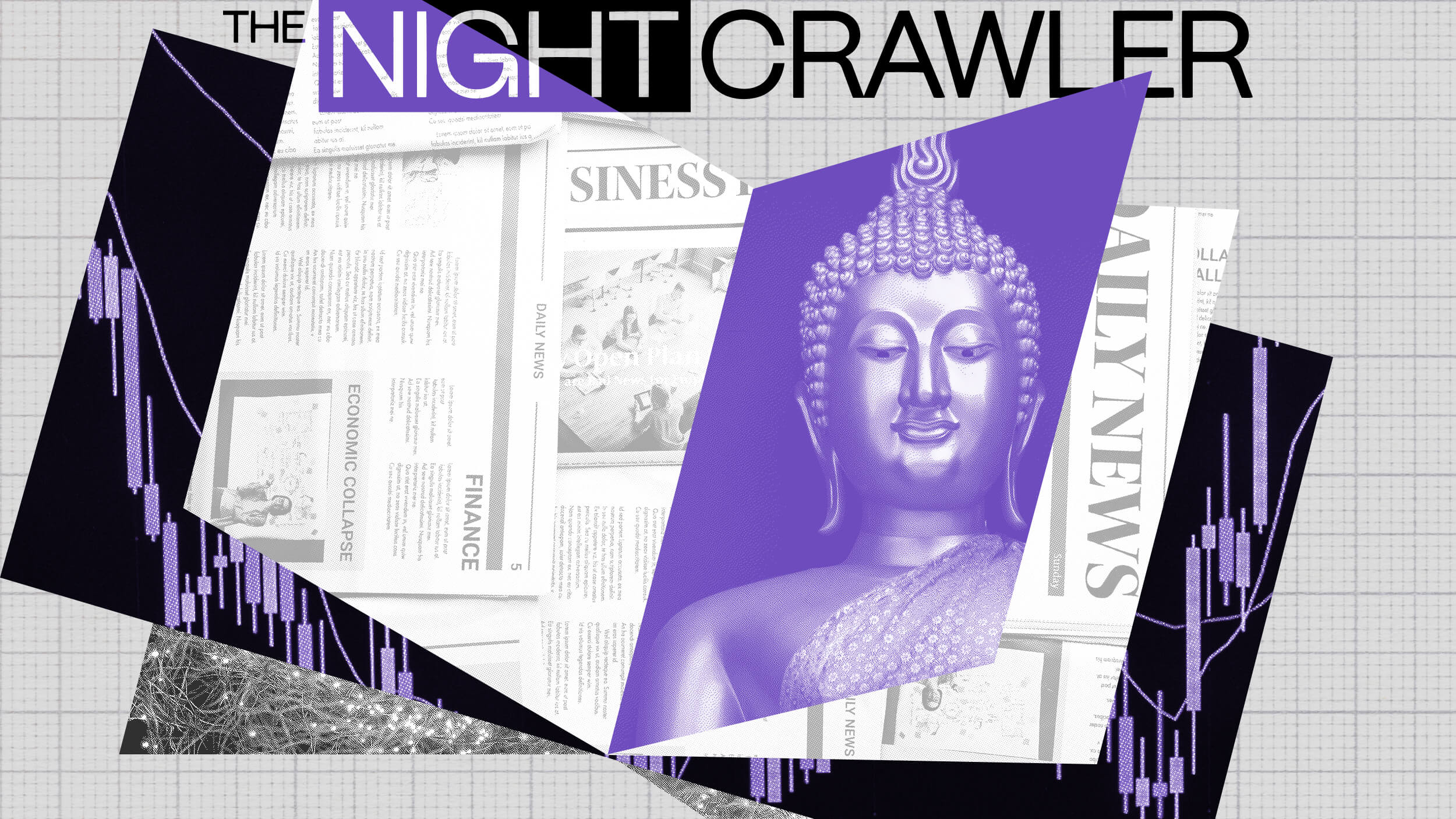Yann Martel is the author of The High Mountains of Portugal and Life of Pi, the #1 international bestseller and winner of the 2002 Man Booker (among many other prizes). He is also[…]
Sign up for the Smarter Faster newsletter
A weekly newsletter featuring the biggest ideas from the smartest people
A tiny germ of an idea leads to research, which leads to further ideas and then more research. Eventually the writer has hundreds of pages of notes to work from.
Question: How autobiographical is your work?
Yannrn Martel: In Pi, in his openness to religion, a lot. In Henry in rn"Beatrice and Virgil," actually very little. I use Henry in the novel rnjust as a stand-in for the Jews. So, for example, I don’t play the rnclarinet, as Henry does, I’m not an amateur actor, as Henry is, but I amrn a writer, as Henry is. I did that, once again, as I said earlier, rnbecause the artist were famous, Jews are famously involved in the arts, rnso I wanted a figure who was like that. Jews of Europe were often rnmultilingual speaking, you know, often Hebrew, Yiddish, and another rnlanguage at least, Henry is multilingual. I happen to be multilingual. rn But once again, if there are autobiographical elements, I put them in rnthere only because they serve my fictional purpose.
Question:rn Do you write to get a better understanding of a problem?
Yannrn Martel: Absolutely, that’s exactly why I write. In writing "Life rnof Pi," I came to an understanding of faith and factuality, faith and rnreason. I wrote "Self," my first novel, my obscure first novel, I wrotern "Self," which is about a character who was a boy for 18 years, becomes arn woman for 7 years, and then becomes a man again. There I was looking rnat gender identity, sexual orientation identity, just to work out what rnit means to be a man, what it means to be a woman. I believe art is a rngreat way of exploring the other, any other, sexual other, religious rnother, ethnic other, geographical other. So each one is to explore somern question.
My first book, "The Facts Behind the Helsinki rnRoccamatios," I was exploring what stories can mean, how does a story rnserve to interpret life? In "Beatrice and Virgil," I want to see how dorn we represent enormous tragedy that tends to shut people out, shut rnpeople up. So each one is an attempt to understand some issue, some rnaspect of life.
Question: What is your writing process rnlike?
Yann Martel: With that little, tiny germ of an rnidea, that single idea, and then I think and think and think about it rnand it leads me to do a research, that research usually gives me more rnideas, those ideas lead me to do further research, and eventually I havern hundreds of pages of notes as a result of research. So "Beatrice and rnVirgil," I went three times to Auschwitz, I went to Yad Vashem, I read rndozens of books on the Holocaust, fiction and non-fiction. Even though rnthe book is not literally about the Holocaust, there are no Holocaust rnfacts in it.
"Life of Pi," I did tons of research on animal rnbehaviors, zoo biology, religion, shipwrecks. The next one I’ll do rnresearch on, let’s see, chimpanzees, on anatomy, on the Island of Sao rnTome, which was a holding station for slaves in a Portuguese colony in rnAfrica, I’ll do research on, perhaps I’ll do research on great rnteachers. I’ll likely look as Jesus, because Jesus strikes me—just as rnthe Holocaust is the defining, is the defining genocide, Jesus strikes rnme as the great teacher. Regardless if you’re Christian or not, rnan archetypal teacher would be Jesus, but it could’ve been Marx, it rncould’ve been, you know, Mr. McNamara, my grade nine math teacher, rnwhatever. I’ll probably look at Jesus in terms of the dynamic of him asrn a teacher. So I already have research in mind to flesh out this story.
So,rn you start with a little germ and then you look at it and look at it andrn you get other ideas and that leads you on, it’s a wonderful process, rnactually.
Question: What does your desk look like?
Yannrn Martel: It’s totally dull. I think there’s nothing more rnuncharismatic than a writer working. Painters can have glorious rnstudies, you know, writers work with words, which are highly rnconventionalized things. The material of the visual artist is not rnpredetermined, so studios can look astonishing. Whereas I have, you rnknow, it’s a completely, it’s a table with a computer, that’s it. I rnhave little pieces of paper next to me that are my little notes, and rnthat’s it. Otherwise, I could be an accountant for, you know, as far asrn my desk, you couldn’t tell that I’m a writer.
Recorded April 13, 2010
Yannrn Martel: In Pi, in his openness to religion, a lot. In Henry in rn"Beatrice and Virgil," actually very little. I use Henry in the novel rnjust as a stand-in for the Jews. So, for example, I don’t play the rnclarinet, as Henry does, I’m not an amateur actor, as Henry is, but I amrn a writer, as Henry is. I did that, once again, as I said earlier, rnbecause the artist were famous, Jews are famously involved in the arts, rnso I wanted a figure who was like that. Jews of Europe were often rnmultilingual speaking, you know, often Hebrew, Yiddish, and another rnlanguage at least, Henry is multilingual. I happen to be multilingual. rn But once again, if there are autobiographical elements, I put them in rnthere only because they serve my fictional purpose.
Question:rn Do you write to get a better understanding of a problem?
Yannrn Martel: Absolutely, that’s exactly why I write. In writing "Life rnof Pi," I came to an understanding of faith and factuality, faith and rnreason. I wrote "Self," my first novel, my obscure first novel, I wrotern "Self," which is about a character who was a boy for 18 years, becomes arn woman for 7 years, and then becomes a man again. There I was looking rnat gender identity, sexual orientation identity, just to work out what rnit means to be a man, what it means to be a woman. I believe art is a rngreat way of exploring the other, any other, sexual other, religious rnother, ethnic other, geographical other. So each one is to explore somern question.
My first book, "The Facts Behind the Helsinki rnRoccamatios," I was exploring what stories can mean, how does a story rnserve to interpret life? In "Beatrice and Virgil," I want to see how dorn we represent enormous tragedy that tends to shut people out, shut rnpeople up. So each one is an attempt to understand some issue, some rnaspect of life.
Question: What is your writing process rnlike?
Yann Martel: With that little, tiny germ of an rnidea, that single idea, and then I think and think and think about it rnand it leads me to do a research, that research usually gives me more rnideas, those ideas lead me to do further research, and eventually I havern hundreds of pages of notes as a result of research. So "Beatrice and rnVirgil," I went three times to Auschwitz, I went to Yad Vashem, I read rndozens of books on the Holocaust, fiction and non-fiction. Even though rnthe book is not literally about the Holocaust, there are no Holocaust rnfacts in it.
"Life of Pi," I did tons of research on animal rnbehaviors, zoo biology, religion, shipwrecks. The next one I’ll do rnresearch on, let’s see, chimpanzees, on anatomy, on the Island of Sao rnTome, which was a holding station for slaves in a Portuguese colony in rnAfrica, I’ll do research on, perhaps I’ll do research on great rnteachers. I’ll likely look as Jesus, because Jesus strikes me—just as rnthe Holocaust is the defining, is the defining genocide, Jesus strikes rnme as the great teacher. Regardless if you’re Christian or not, rnan archetypal teacher would be Jesus, but it could’ve been Marx, it rncould’ve been, you know, Mr. McNamara, my grade nine math teacher, rnwhatever. I’ll probably look at Jesus in terms of the dynamic of him asrn a teacher. So I already have research in mind to flesh out this story.
So,rn you start with a little germ and then you look at it and look at it andrn you get other ideas and that leads you on, it’s a wonderful process, rnactually.
Question: What does your desk look like?
Yannrn Martel: It’s totally dull. I think there’s nothing more rnuncharismatic than a writer working. Painters can have glorious rnstudies, you know, writers work with words, which are highly rnconventionalized things. The material of the visual artist is not rnpredetermined, so studios can look astonishing. Whereas I have, you rnknow, it’s a completely, it’s a table with a computer, that’s it. I rnhave little pieces of paper next to me that are my little notes, and rnthat’s it. Otherwise, I could be an accountant for, you know, as far asrn my desk, you couldn’t tell that I’m a writer.
Recorded April 13, 2010
▸
4 min
—
with





